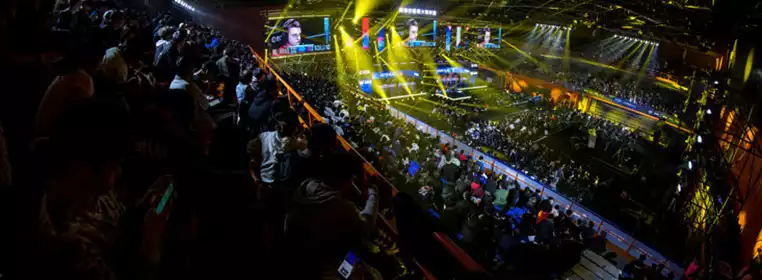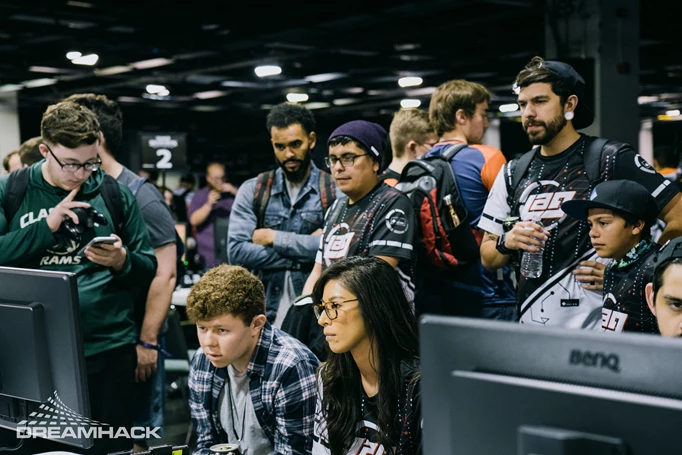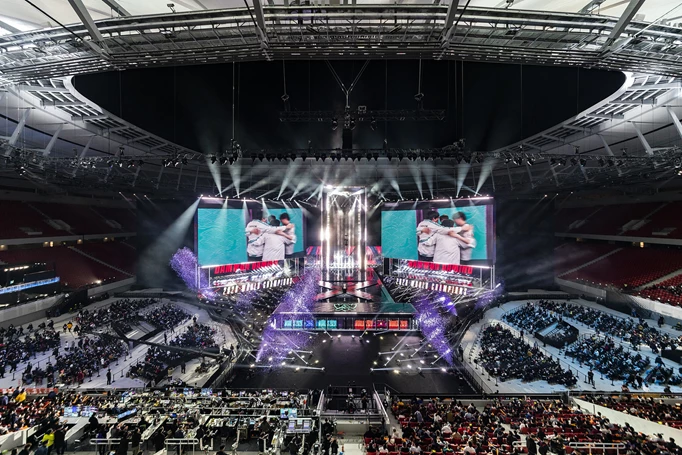Why Esports Aren’t Just Another Sport

It’s one of the oldest discussions in esports. Journalists, investors and marketers have written dozens of articles about it: Are esports really sports? Well, yes, there are so many similarities that esports could be considered sport. But in 2021, there’s more to it than that. GGRecon takes a look at the age-old debate, the recent developments, and why esports aren’t just another sport.
Esports are very much like sport
When people disregard esports because it’s “just games”, they seem to forget where the love for traditional sports comes from. Traditional or electronic - what we call “sport” is just games that people like to watch and play competitively.
Traditional sports have been around for much longer, but games like Counter-Strike: Global Offensive (CS:GO) and League of Legends show that esports titles aren’t just a fad. Games like these aren’t just popular at launch, but maintain an active player base for many years, and many more years to come. A constant or growing popularity of the game means the esports scene can develop and grow, and become multi-generational. It’s just a matter of time before a generation grows up with parents who understand gaming and esports culture, because they themselves grew up with it.
Another characteristic of esports that sets it apart from sport in most people’s minds, is physicality. And while it’s true that esports players aren’t running around a field when they’re competing, playing games at such a high level is more taxing than you might think. Players have to train for at least six to eight hours a day, but often play more than that. Playing matches is exciting and stressful. Ingo Froböse from the German Sport University, Cologne, told Deutsche Welle that the stress hormone cortisol rises as much as when a footballer shoots a penalty kick in a Champions League final.

 Click to enlarge
Click to enlargeBig muscles don’t win you every traditional sport either. Archery, for example, is an Olympic sport that heavily relies on fine motor skills. Many other sports require more tactics than pure strength to win. Besides, esports organisations want their players to be in shape. Mens sana in corpore sano, as the Latin saying goes: physical exercise is important for your mental well-being. It helps the players to stay focused and level-headed in exciting matches.
The physical aspect also plays a role when it comes to injuries. Tennis elbow, carpal tunnel syndrome, and back pain can plague esports players just as much as traditional athletes, and if those injuries aren’t treated correctly, it can cut a career short.
But even without any injuries, it’s hard to stay at the top. The very competitive nature of esports, with young talent coming in all the time to dethrone the veterans, means that a long-lasting career isn’t in store for everyone. Many early retirements take the average professional lifespan of an esports player to only one or two years.
Money, money, money
Still, it’s an exciting and attractive career path for many young gamers. If you can compete at the highest level, there is big money to be made. Even the biggest esports haven’t caught up to the salaries in traditional sports like football and basketball, but that might just be a matter of time. As the interest in esports grows, the money involved grows too.
The esports industry has always wanted to be taken seriously by traditional sport fans and industry leaders, but nowadays, its position has changed.
Sponsors and advertisers have found their way to esports. With growing interest from big businesses, esports are becoming more and more lucrative for other organisations to invest in. It makes sense - esports fans are young and engaged, which makes them the perfect audience for advertisers. Riot Games told CNN that the average LEC fan is just 23 years old - 19 years younger than the average age of football fans - showing the lifelong potential of its supporter base. “There's three things that every sports organisation wishes to have: we are already global, we are fundamentally digital, and 85% of our audience is below 25 years old. So naturally, we're going to grow, with the new generation [...] watching this as their favourite sport."
Traditional sports organisations have taken notice of esports. The esports industry is growing every year by 10 to 15 percent, so it’s hard to ignore. And slowly but surely, the ignorance and scepticism about esports doesn’t lead the conversation. Traditional sports see their fans getting older, as viewership from a younger demographic is declining. To attract young people, many businesses turn to esports.
- Related - Can Esports Be A Legitimate Career?
Let’s learn about what we can share
Thomas Bach, the president of the International Olympic Committee (IOC), is inviting the worlds of esports and traditional sports to work together. “Let’s learn about what we can share,” he said to Riot Games at an esports event at the IOC headquarters. Esports was recognised as a sport by the IOC in 2017, and the IOC is looking for ways to integrate esports into the Olympic experience. The next step will be at the Intel World Open, an esports event featuring Rocket League and Street Fighter V leading up to the Tokyo Olympic Games.
The esports industry has always wanted to be taken seriously by traditional sports fans and industry leaders, but nowadays, its position has changed. It is no longer the little brother who needs to be taken by the hand. Esports don’t have to look for acceptance from traditional sports organisations; they’re doing well enough for themselves.
Of course, esports don’t need to reinvent the wheel. Traditional sports organisations and events have a lot of experience that the esports scene can take advantage of. Everything from coaching and sport psychology, to event organisation and marketing, has a long-standing tradition in traditional sport. Esports organisations can look to sports clubs for inspiration and advice.
Systems set up for traditional sport can help esports to get started in some areas. In the US, sport and education go hand in hand, with high school teams and college scholarships. The same structure to encourage talent development is now also used for esports, and already more than 170 schools have scholarships for esports, according to the National Association of Collegiate Esports.

 Click to enlarge
Click to enlargeEsports have their own unique strengths
Ultimately, esports don’t have to be restricted by the existing framework of traditional sport. Although they’re similar in many ways, esports have their own strengths to nourish.
Esports profit from their great accessibility. Everyone with a pc or a console can play the games, and become a fan or even a competitor in the big leagues. Just as important is how easy it is to watch esports. Instead of specific TV channels holding the rights to broadcast the events, everyone around the world can follow esports matches on the internet.
Over the past few years, esports fans have built their own communities, with their own customs and memes. Connecting with other fans and players from all over the world through Discord, spamming copypastas in Twitch chat - these are experiences unique to the esports scene. The comradery at LAN events, when people who normally play and watch from their own home come together, is not quite like anything fans of traditional sports experience.
These things attract young digital citizens, to witness and take part in the excitement, the drama, and the sheer fun that esports can bring. Esports and traditional sport both have their own place in the entertainment ecosystem, and one is certainly not inferior to the other. But that never needed to be a competition anyway.
Images via ESL | Dreamhack | Riot Games
